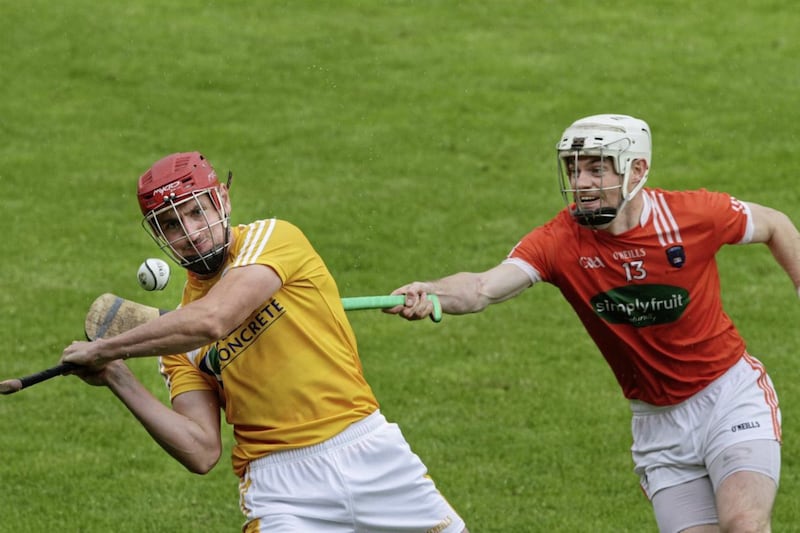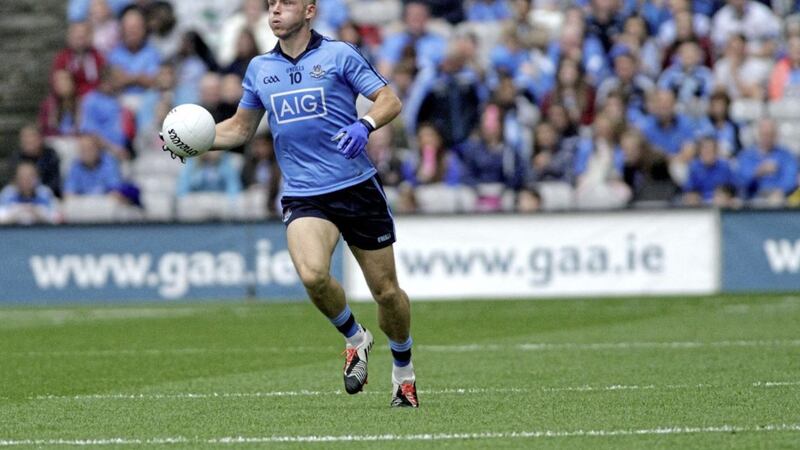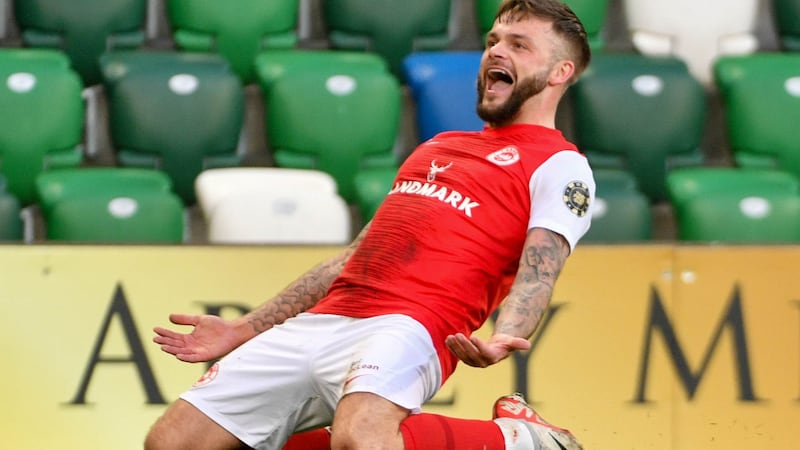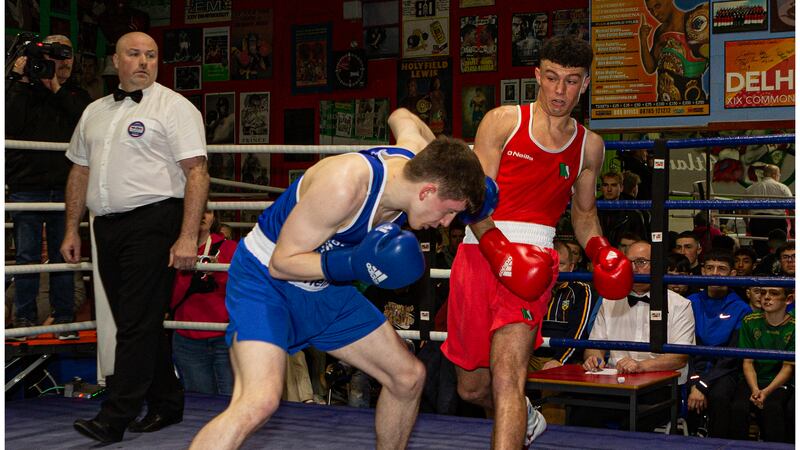LAST month, Antrim hurler Simon McCrory announced his inter-county retirement. He had one look at the team’s training programme and said no thanks.
McCrory is 32. He served Antrim with distinction for 12 years. He works as a full-time coach under the auspices of the ‘Gaelfast’ project in Antrim. There were simply too many clashes with his work to continue playing for his county.
So he walked away.
In a candid interview with The Irish News, McCrory revealed he couldn’t find balance in his life because he was dedicating too much time to his chosen sport.
And he paid a price. He hit a wall and sought the help of the GPA’s mental health services. He’s eternally grateful to the GPA.
“The demands in terms of training and being ready for matches, I just found life very difficult to manage and trying to find a happy medium, a balance,” McCrory explained.
“I just don’t know how some players do it. I see the top players in my own county and they seem to do it so well. I wasn’t able to do it well, so I needed help to support me in my life. Thank God I turned to the GPA to help me.”

McCrory neglected other aspects of his life.
“Is it right to be putting so much time into it?
“Are our players neglecting other sides of their life? Are they neglecting their mental health? Are they neglecting their career paths? Are they neglecting their university studies or their part-time work?
“Are they neglecting personal relationships? I can only speak from my experience: being an inter-county player has put a strain on family life and any relationship I've been involved in because you barely see each other.”
The pastoral care he received via the GPA services was second to none.
When McCrory stepped away from his work for a short period, the GPA and Antrim County Board covered his wages until he resumed his coaching work.
Everyone knows someone in an inter-county squad where the players' body has assisted them in their time of need.
But, in many instances, it’s a self-fulfilling prophecy.
A lot of inter-county players hit the hard shoulder because they have let other aspects of their life slide.
So, the GPA has their support services at the ready.
It's fire-fighting.
They are treating the symptoms, not the causes.
While the GPA acknowledged the ESRI’s in-depth research paper on ‘GAA commitments influence education, career and other aspects of inter-county players’ lives’, released late last year, the players body concentrated on "striving for a modern form of sustainable amateurism where players understand the importance of their career outside of the game…”
GPA chief executive Paul Flynn added: “The report also underlines the need for a robust range of player development supports from the GPA.”
Last week, Flynn said inter-county players dedicate 31 hours of their time each week to proudly represent their counties.
Clearly, the GPA should be seeking to reduce that amount of time rather than using it as a reason for the GAA to give the players’ body more money to create a “modern form of sustainable amateurism”.
If the 31 hours per week figure can be relied upon, that’s a lot of employment careers being put on hold among the inter-county playing fraternity; it could be the difference between a 2:1 and a 2:2, or being around enough evenings to put your kids to bed.
So, the GPA wants their players compensated.
But the GAA can’t hold out to that level of compensation - despite the veneer of record-breaking revenue in 2019 - especially when you consider their capital projects in Belfast and in Cork and where many parts of the country have had their hands out to revive Gaelic Games in both rural and urban areas.
Croke Park could also do themselves a favour and review some of the big salaries floating around their own corridors.
The vast majority of county boards are already overspending on their county teams and not enough money is being recycled back into the grassroots as clubs engage in endless, hard-cash fundraisers to sustain themselves with little or no help.
And, in a bungled attempt to reduce expenditure in other places, the U20 football Championship has been shoehorned into a crowded winter slot and as a consequence is actually devoid of any notable investment, to the point where it seriously narrows the path that leads to senior football.
All to feed the all-consuming financial monster that is the senior inter-county game.
The GPA is currently in receipt of €6.2m per year. That's already a bloated figure. They also pull in big numbers from their fundraisers Stateside.
And yet they are beating the GAA’s door down for more as negotiations on a new deal intensify.
Unlike the GAA’s grassroots, the GPA is not struggling to make ends meet.
And that’s why there is a lot of antipathy towards the players' body. They are viewed almost exclusively in elitist terms.
Paul Flynn’s press statement last week was akin to one of those text messages you send and you wish you hadn’t.
You wonder what world the GPA chief inhabits for him to think that vast swathes of his 807-word statement were a good idea.
Who advised him? Who had the red pen at the ready? How many people read the draft before Flynn pressed the send button?
The statement came across as precious and entitled, perhaps to the point where some GPA members may have squirmed at its flapping sanctimony.
Instead of the GPA trying to create a “modern form of sustainable amateurism”, which sounds desperately euphemistic, they should be asking the GAA to reduce the length of the senior inter-county season by a radical margin as well as lobbying for a cap on collective training and gym nights so that the 31 hours are drastically lowered.
Then, the Gaelic Athletic Association might just be able to sustain itself.








